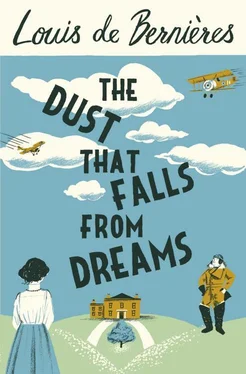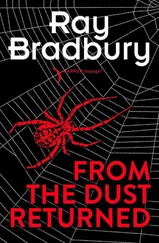Daniel had been both lucky and unlucky to have been a Camel pilot. Lucky because for many months the Camel was more split-arse than any other aircraft. It had all the heavy equipment packed into one area. It was built to be unstable, was prone to a sudden right-hand spin, and responded instantaneously to the slightest touch of the controls, which was why it took three months to learn to fly it, and killed many unfortunate beginners. Once you had learned, it became an extension of the body. It could do the most amazing manoeuvres. If it were half rolled onto its back, the nose would drop, and you could loop up behind the very machine that had been chasing you. The pursuer would have no idea what had happened or where you had gone until you came up behind and got him in your Aldiss sights. The Albatri and Pfalz fighters had no chance against it, and the Germans stuck to defensive tactics that did not work, lurking behind the lines in huge formations. The Camels shot them down in droves, and then, months later, the even more split-arse Fokker DV11 arrived too late to make enough difference to a lost cause, and in any case they themselves would have been up against the new Sopwith Snipes that also arrived too late.
It had been unlucky because the Camel was useful for strafing. The most nightmarish period had been during the last great German offensive. The Camels had gone out several times a day with their ingenious Cooper bombs, and had been shot down by the dozen by hidden machine guns that had only to execute the simplest of deflection shots. Survival had nothing to do with skill. The pilots suffered the roiling of their intestines and the wrenching fear, and then came home and raged against the horror and danger and sheer strain of it, and yearned to get back up high in the sky to engage in honest jousting with the Hun. When you bombed and machine-gunned the troops, you could see your victims reeling and dying, you saw the horses rearing up and falling over, the lorries catching fire, and if you had any sense you got away as soon as you could, went home, got tight, and tried not to think about what you had just done to other human beings, about what had happened to your friends who never returned, and you tried not to ask too many questions, not about what it was all for, because in reality few people questioned the righteousness of the cause, but rather about whether it was all being done in the most intelligent way. You could tie yourself up in knots. How often Daniel had sat alone, his head in his hands, in a hut with three newly empty beds, and then filled his nights with parades of terrifying dreams and the faces of the looming dead. There was a ground-attack machine being manufactured now, everyone said, called the Salamander, which had 650 pounds of armour-plating, and when it arrived the Camels could go back to the empyrean, where they belonged, but the Salamanders arrived too late, and so the Camels continued to fall to earth, sacrificing the marvellous skill of their pilots for the small reward of spreading terror amongst the enemy.
When the last great German offensive failed and the Allies began to roll the Boche back across the old killing fields of the Somme, the ground attacks eased up, but then you had your memories and your fear to contend with. You blessed the dud days when the cloud was too low, or it was raining, or the wind too strong. You accepted your day off gratefully, except that you felt hard done by if it was raining and you wouldn’t have gone up anyway. During the worst times you even hoped to get influenza or a Blighty wound. You spent the rainy days wondering if everybody else had the wind up as badly as you did, and you discussed it only with those to whom you were closest, or you walked out into a field and talked to the cows and horses. You reflected that perhaps it was better to die young and strong, in your prime, as long as it was not, please God, by being burned alive. It might be better if you did die, because, after this, what else could there possibly be? You took your leave and your time on Home Establishment, because it was rightly believed that a pilot could only stand six continuous months at the front, but then you were back, and quite often you were killed on the first day, like McCudden in his SE5, who hit a tree on take-off, perhaps because he had forgotten about the extra weight of bombs, or perhaps because his engine failed whilst he banked steeply away.
Daniel knew that the memories would remain indelibly with him as long as he lived: the little estaminets where you could eat good food and drink good wine under the admiring eye of a mother and her daughters; the little propeller that drives the oil pressure on a Camel; the pressure gauge that cuts out in a dive so that you have to pump by hand and switch over to gravity; the days as orderly dog; the pitot, the efell that would one day become the windsock; the conversations through the canvas walls of the latrine, where you would never know who else was there until they spoke; the trigger on the joystick; pushing up goggles to see better; rubbing Vaseline all over your face on freezing days; the use of the thumb to block out the sun so that you could spot the enemy machines coming down on you; the configuration of the instruments in your ‘office’; the way that batmen are really better than women, because they don’t expect any appreciation; the woofing and clanging and coughing of archie; the crumping of shells; the pleasing novelty of Camel cigarettes when the Yanks arrived; the dud engine signal; the flight leader’s streamers; the waggling of wings to warn of a Hun; the horror of your first spin; toasting bread on the fire of the mess; burning out the colonies of earwigs with a candle; turning over and breaking the prop if you have to land in a ploughed field; happy hours with your ack emmas and riggers when they have your machine up on a trestle to simulate the conditions of flight; happy desperate hours talking rot when blotto; the black smudges of archie as the Germans warned their own aircraft of your approach, and the white smudges of Allied archie that warned Allied pilots of Huns; the sharply painful changes of pressure in the ears on a dive; listening to Chu Chin Chow on the gramophone a hundred thousand times; bully beef; the terrifying but ineffective blobs of phosphorous that rose into the sky in strings and were known as flaming onions; the superstitions that came out of nowhere; being trapped in a shell hole between the lines when your engine failed; the horrendous mess bills that soaked up all your pay; the pilot who used to do a loop on take-off and could pull off a perfect Gosport landing; the happy hours of rifle practice trying to detonate a Very light from a hundred yards; the roar and clatter and blue exhaust of the Crossley tender; the shows and sallies during leave in London; being hung-over and biffo; the complete absence and preciousness of sugar; the rumours that the Huns were reduced to eating rats because of the naval blockade; beef that was really horsemeat, and why not? with so many horses killed each day; the overwhelming wonderfulness of the Bristol Fighter that was as good as a scout as it was for reconnaissance; Enos and aspirins for days after the nights before; the constant racket of night bombing and the glow like a rising sun on the horizon when an ammunition dump exploded; the unsubstantiated rumours of how the fleeing Portuguese soldiers were shot down by their contemptuous British allies; the blessed stays in hospital where the night nurses clumping around with their lamps turned out to be as inimical to sleep as heavy guns and Gotha bombers and night Camels and Fes and all the other minions of the moon; putting on a split-arsing show for the villagers on Sunday afternoons; chaperoning the Quirks and Harry Tates on reconnaissance; the pale earnest young patriots who could quote Shakespeare and Sophocles, who you took on Cook’s tours of the lines to show them the ropes and then died on take-off in their second week; and above all the friends who were better than any friends you would ever have again, who died just when it seemed that they never could, and left a hole in your being like the absence of God. Well my lads, here’s to the boys in the Bone Orchard.
Читать дальше












